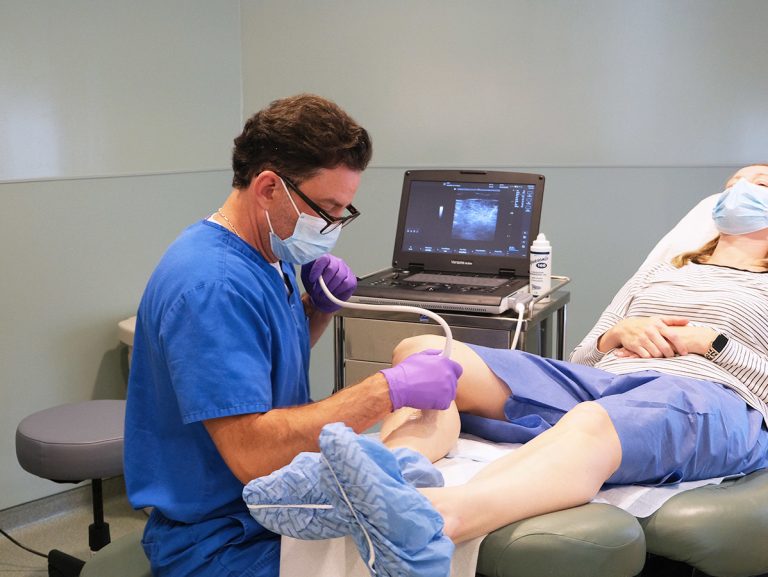Vein clinics specialize in diagnosing and treating various vein-related conditions, offering solutions to improve both aesthetic concerns and medical issues related to the circulatory system. Whether you’re experiencing varicose veins, spider veins, or deeper vein issues like chronic venous insufficiency, a vein clinic can provide expert care to enhance your quality of life. This article will guide you through the services offered, treatments available, and how to choose the right clinic for your needs.
What is a Vein Clinic?
A vein clinic is a medical facility dedicated to the diagnosis and treatment of vein-related conditions. These clinics often employ specialists like vascular surgeons, interventional radiologists, and phlebologists (vein doctors). They utilize advanced technologies and minimally invasive procedures to treat venous disorders that impact circulation, comfort, and appearance.
Common Vein Conditions Treated
Vein clinics treat a wide range of venous issues. The most common conditions include:
- Varicose Veins: These are enlarged, swollen veins that often appear in the legs. They can cause discomfort, pain, and visible bulging beneath the skin.
- Spider Veins: Smaller than varicose veins, spider veins are superficial blood vessels that form a web-like pattern, typically on the legs or face.
- Chronic Venous Insufficiency: This condition occurs when the veins in your legs are unable to properly return blood to the heart, leading to swelling, pain, and skin changes.
- Deep Vein Thrombosis (DVT): A more serious condition, DVT is caused by a blood clot forming in a deep vein, usually in the leg, which can lead to serious health risks if not treated promptly.
Services and Treatments Offered at Vein Clinics
Vein clinics offer various services aimed at treating both cosmetic concerns and underlying medical conditions. The treatments are typically minimally invasive, requiring little to no recovery time.
1. Sclerotherapy
Sclerotherapy is a popular procedure for treating spider veins and small varicose veins. It involves injecting a solution directly into the vein, causing it to collapse and fade away over time. Sclerotherapy is quick and effective, often completed in 30 to 45 minutes.
2. Endovenous Laser Therapy (EVLT)
EVLT is a laser treatment for larger varicose veins. The procedure uses laser energy to heat and close off the problematic vein, allowing blood to reroute through healthier veins. This outpatient treatment has a high success rate and involves minimal discomfort.
3. Radiofrequency Ablation (RFA)
RFA is another minimally invasive treatment that uses heat generated by radiofrequency energy to seal off problematic veins. Like EVLT, this treatment is highly effective for varicose veins and is performed under local anesthesia.
4. Vein Stripping
In cases where less invasive methods are not suitable, vein stripping may be recommended. This surgical procedure involves removing large veins through small incisions. Though more invasive, modern vein stripping techniques are less painful and have faster recovery times than traditional surgery.
5. Ultrasound-Guided Foam Sclerotherapy
For larger or more complex veins, ultrasound-guided foam sclerotherapy may be used. A foam solution is injected into the vein under ultrasound guidance, ensuring precise targeting of the affected area.
Benefits of Visiting a Vein Clinic
Seeking treatment at a vein clinic offers several advantages, particularly if you’ve been dealing with discomfort, pain, or dissatisfaction with the appearance of your legs.
1. Improved Appearance
For many people, varicose or spider veins are a cosmetic concern. Vein treatments can significantly improve the appearance of these veins, boosting confidence and comfort in your skin.
2. Enhanced Mobility and Comfort
Many venous conditions cause discomfort, heaviness, and pain in the legs, particularly after standing for long periods. Treating varicose veins or other venous disorders can alleviate these symptoms, leading to improved mobility and an overall better quality of life.
3. Prevention of Complications
Certain venous conditions, if left untreated, can lead to serious complications like blood clots, skin ulcers, and deep vein thrombosis. Early intervention at a vein clinic can help prevent these issues from developing or worsening.
4. Minimally Invasive Treatment Options
One of the most significant benefits of vein clinics is the range of minimally invasive procedures offered. These treatments generally involve shorter recovery times, less pain, and quicker return to normal activities compared to traditional surgeries.
How to Choose the Right Vein Clinic
Selecting the right vein clinic for your treatment is essential for ensuring you receive high-quality care and the best possible outcomes. Consider the following factors when choosing a clinic:
1. Qualifications and Experience
Ensure the clinic is staffed by board-certified vascular specialists or phlebologists with experience in treating venous conditions. Check for patient reviews, success rates, and any certifications from medical boards or professional organizations.
2. Advanced Technology
Look for a clinic that uses modern technology and advanced treatments such as laser therapies, radiofrequency ablation, and ultrasound-guided procedures. This ensures that your treatment will be minimally invasive, effective, and safe.
3. Patient-Centered Care
The best vein clinic will offer personalized care tailored to your specific needs. Make sure the clinic takes the time to evaluate your condition and provide a treatment plan that addresses both your symptoms and your personal goals.
4. Post-Treatment Support
Aftercare is essential to ensure a smooth recovery. Choose a clinic that offers follow-up consultations and clear instructions for managing your recovery process.
Conclusion
Vein clinics provide specialized treatments for a variety of venous conditions, helping patients manage pain, discomfort, and aesthetic concerns. With minimally invasive treatments like sclerotherapy, laser therapy, and radiofrequency ablation, you can improve the appearance of your legs and overall quality of life. By choosing a reputable vein clinic that offers advanced technology and patient-centered care, you’ll be well on your way to healthier, more comfortable legs.





